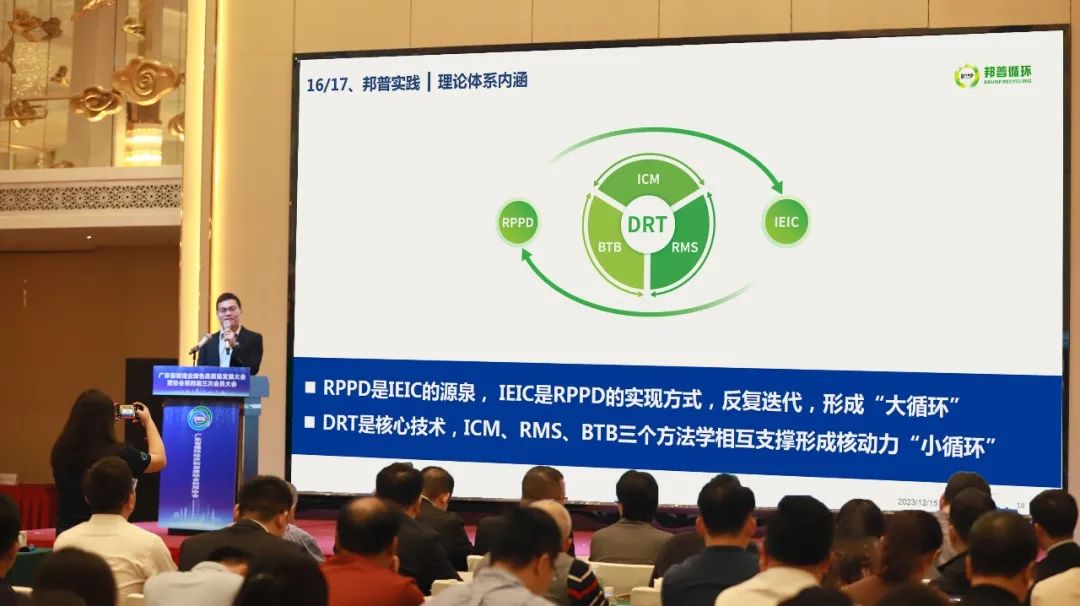Brunp Leads Industry Development with DRT Innovative Theoretical System
-
Release time:2023-12-14
On December 14th, 2023, the Guangdong Green and High Quality Development Conference of Manufacturing Industry, hosted by the Guangdong Association of Circular Economy and Resource Comprehensive Utilization, was held in Guangzhou. At the meeting, Liu Zhipeng from Brunp shared the Brunp practical plan for the high-quality development of the EV battery industry under the background of dual carbon.

In the year of 2008, Brunp proposed Reverse Product Positioning Design(RPPD), working together with upstream and downstream industrial chains to create a circular ecosystem. On the basis of RPPD, Brunp have taken the lead in proposing a new engineering technology model for high-quality development of battery recycling industry: Integration of the Entire Industrial Chain(IEIC). In 2021 and 2022, Brunp have successively built the Yichang IEIC park and the Foshan IEIC park.
In order to solve the problems of discontinuous production and manufacturing processes, high energy consumption, and low recycling efficiency in the battery recycling industry, Brunp has also proposed Directional Recycling Technologies(DRT) to achieve a circular flow process.
Around DRT, the Brunp has proposed a series of methodologies. In October 2023, the Integrated Carbon-right Method(ICM) for EV battery recycling was jointly released by Brunp and relevant institutes of the Chinese Academy of Sciences. As a green and low-carbon method in China, ICM will support global carbon rights equality, promote international connectivity and mutual recognition of carbon footprint.
At the same time, the Recovered Materials Traceability Method(RMTM) and the Recovered Materials Standard(RMS) with Barcode-Time-Batch(BTB) as the technical core were proposed, which innovatively combined traceability codes, interval segments, and product ends, solving common problems such as ineffective traceability of recycling material proportion accounting data in the industry, process differences between enterprises, lack of continuity in product disclosure, and poor matching of solution traceability, achieving forward accounting and reverse traceability of product recycling materials.
Share



